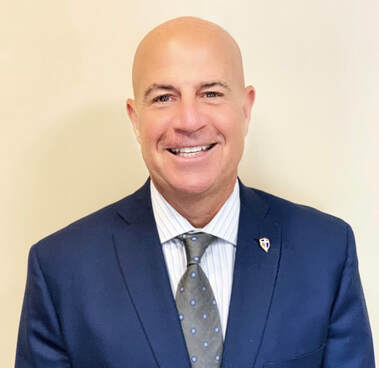 Caroline Willard Caroline Willard Cornerstone League and Heartland Credit Union Association (HCUA) members have voted in favor of a merger between the organizations. Of the 283 members who voted, 263 Cornerstone and HCUA members have voted in favor of the merger, clearing the path for the consolidation of the two entities. HCUA members voted Oct. 24-28 while Cornerstone’s members voted in a special membership meeting on Monday morning. The final tallied results: HCUA members voted 121-17; Cornerstone members voted 142-3. “In merging with Heartland Credit Union Association, we’re building upon our experience as a three-state league to chart the new frontier for the league system,” said Cornerstone League Board Chairman James Boyd. “Our combined entity will strengthen Cornerstone’s value proposition to its members and usher in fortified credit union advocacy and member service.” “The only way for a league to gain scale is to combine with another league, since there are more credit union mergers than de novos these days,” said Cornerstone League President/CEO Caroline Willard. “We began this merger process with credit unions top of mind and as we work toward a successful consolidation, will continue to be guided by our commitment to our members’ success. Together with our expanded team and membership, Cornerstone League will achieve scalability and unprecedented value proposition.” “The HCUA Board of Directors is grateful to our members for their commitment and trust during this process to arrive at this important decision,” said James Nastars, Heartland Credit Union Association’s Board Chair and President/CEO of Meritrust Credit Union in Wichita, Kan. “We look forward to networking with a larger group of peers with even more perspectives and opportunities for collaboration that serves credit union members.” “The Heartland Credit Union Association appreciates the support of our membership to merge into the Cornerstone League,” said Lisa Althoff-Simmons, HCUA interim CEO. “As a five-state league, we will both enhance our regional impact and maintain a local, customized approach to the events, training, and resources that we provide to our member credit unions.”
0 Comments
 Frank Hauck Frank Hauck A volatile economy, the widespread expectation for all interactions to be hyper-personalized, and the evolving role of physical touchpoints have each had significant impact on financial services this year. Financial institutions are challenged to keep pace with rapidly evolving technology and an increasingly precarious security landscape all while expanding customer relationships and operating under thinning margins and staffing shortages. Experts from NCR today shared commentary on how these factors will shape trends to watch in 2023 and beyond. Data & AI Financial institutions will make more progress in transforming data into action through leveraging sophisticated AI, with a particular focus on helping customers improve financial wellness. Gone are the days when just talking about data collection and analysis is enough; next year, sharp focus will be given to making data actionable, using the information to boost efficiencies, bridge customer experience gaps and generate revenue. A key theme will be providing personalized advice to help customers better manage their finances. After all, community financial institutions are the ideal partners to step up and help customers during times of economic turbulence. Institutions will offer AI-driven education via digital touchpoints, such as through video-based curriculum models and gamification. Institutions will also strive to deliver deeper budgeting assistance, like through automatic budgeting tools, advice around savings goals and paying off debt, and proactively pointing out potentially problematic behaviors (such as engaging in an excessive amount of BNPL-type services or cryptocurrency investing). Evolving payments Providing more comprehensive payments capabilities will be critical to competing with a broadening and intensifying competitive landscape. BigTechs, fintechs and even major retailers (like Walmart) continue to vie for market share, entering the space with different payments offerings, such as small business payments, P2P, BNPL, etc. Better serving small businesses will remain a goal for many, especially when it comes to offering relevant payment options for these customers. Even though there are countless digital payments tools currently available for small businesses, it can be a confusing market to navigate. Small businesses’ trusted institutions must be doing more to deliver secure, flexible payments offerings for their small business customers, helping them understand which options best meet their unique needs as well as the needs of their customers. And don’t discount cash, despite regular predictions of its demise. Cash represents approximately 30% of in-person payments, and this figure could very well rise as a surging cost of living and potential recession are making consumers turn increasingly to cash to improve their budgeting; after all, you can’t spend what you don’t have. But as labor and cash-in-transit costs increase, financial institutions will look for more efficient ways to manage cash throughout their network Channel services to create the connected experience Financial institutions finally start to break down the complex and bespoke silos of infrastructure. Cloud, APIs and micro-services continue to be the path forward to both rearchitecting existing services and bringing new services to market. The key is developing channel services that are reusable across touchpoints and optimized for both customer and banker experiences. Converging the channels delivers better experiences, enabling customers to move their transactions across different touchpoints. These converged channels then operate consistent business rules and enable better use of data. By modernizing, financial institutions can transform fragmented customer experiences into seamless journeys. Digital-first branch and banking The transformation of physical touchpoints persists, infusing digital elements. As financial institutions optimize their physical footprints, providing remote assistance through traditional self-service channels often known as Interactive Teller Machines (ITMs) is becoming an increasingly important vehicle to offer customers digital-first, efficient self-service options and lower the cost to serve. ITMs have also become a strong way to provide greater flexibility to employees, including work-from-home options for tellers, which is especially critical in the face of The Great Resignation and staffing shortages. Channel services will also have a major impact on branch modernization. Connecting previously disparate channels will enable institution employees to engage with the customer in multiple, more interactive ways. Enabling simplicity and convenience will be a main priority in all customer interactions, including providing easy, digital-first ways to open and onboard accounts. Strategies for ATM management will shift, as more institutions embrace the ATM as a Service model. Outsourcing provides significant benefits to both financial institutions and their customers. Institutions can reduce costs and complexity, innovate more quickly, mitigate risk and enhance their regulatory compliance. At the same time, customers are benefitting from expanded services and greater availability. Voice banking A customer’s ability to use their voice instead of a keyboard will see a significant resurgence, especially as more institutions adopt chat and virtual assistants. While there was a major focus on voice banking several years back, it failed to live up to the hype. However, now that voice recognition technology has become more sophisticated, the time is finally right for widespread adoption. Smartphone voice assistants and home smart devices will become yet another vehicle to conduct banking transactions as well as conversations with virtual assistants. Focus on security Security will continue to take center stage, as advanced biometrics and AI become mainstream to better protect the end user. Convenience and ease of use are the hallmarks of a great digital customer experience. However, an increase in these factors can unintentionally lead to security gaps. The financial institutions that are able to blend security and seamless interactions most effectively, regardless of channel, will gain a significant advantage in delivering superior digital-first experiences. Brand reach and branch experiences trending to outweigh branch reduction efforts The trajectory of branch reductions will flatten after several years of significant change. While a record number of branches closed from 2020 into 2022, net branch closure data from Q2 and mid-Q3 of 2022 shows a significant slowdown. Investment in improving remaining branch experiences from interior redesign to technology will become front and center versus closing sites. The largest institutions (both banks and credit unions) will continue to grow in markets they previously had limited presence and corresponding market share. A continued shift to consumer-directed money movement and payment methods We have seen two major payments milestones so far this year: Apple Pay passing Mastercard in dollar volume processed, and Zelle moving more funds on a gross dollar basis than Venmo and CashApp combined. The consumer is choosing what platform to use based on what meets their needs and expectations and offers a seamless experience. Integrated, one-touch solutions are winning over “new to wallet” or “new to phone” offerings. Consumers are rewarding the frictionless platforms with their transactions and engagement which will accelerate in 2023. Changing Demand Deposit Accounts (DDA) propositions have issuers revisiting existing customer development The combination of widespread changes in overdraft fees coupled with card not present regulatory action in 2022 will retrench issuer focus on cross-selling existing customers versus acquiring new ones. Priority will be placed on growing share of assets, services and more profitable products such as credit cards or personal loans with existing customers. Developing existing customers through awareness and follow-through in their physical and digital interactions with issuers will become even more critical as customer-level profitability continues to be under pressure. 2023 and beyond “It’s been a year full of challenges and opportunity for financial services. Those institutions that lean into modern, open technology will be well-positioned to quickly innovate, boost efficiencies and deliver exceptional, personalized customer experiences for the new year and beyond,” said Frank Hauck, president and general manager, NCR Banking. “At NCR, we are proud to deliver the software and services that transform, connect and run technology platforms for institutions across the globe.” THREE WAYS TO HELP YOUR MEMBERS IMPROVE YOUR SAVINGS SKILLS FOR 98TH ANNUAL WORLD SAVINGS DAY10/31/2022  Joe Tedesco Joe Tedesco Monday, October 31st is World Savings Day, so it’s a time to remember how important saving money can be to our members. The first World Savings Day began in 1924 to support the organizations around the world who wanted to help people save money, which is vital for anyone at any age. Getting a head start on savings can help members achieve life goals, like paying for college, buying a house, or cashing out for retirement. Saving money can also give you peace of mind, knowing that you are secure in case of a change in income or fluctuating economy. Here are a few ways members can improve their saving and spending habits: 1. Saving takes commitment. Everyone has a goal of saving money, but you need to commit yourself to wanting to do it. Look closely on where your money is going on a monthly basis and how that money is being spent. It is important to recognize where you stand financially and where you would like to be in the future before you begin the saving process. 2. Look for ways to positively impact the cash flow in your life so that you can have left over funds to save at the end of every month. I always recommend taking a look at what you are spending your money on. Go over your monthly subscription plans and cancel any you aren’t actively using. Try to get the most basic plans when it comes to cellular or cable bills. There are so many services that we don’t use fully, so finding little ways to cut back can help you save big money in the long run. 3. Pay yourself first. Treat yourself like a payee and set up automatic payments so that a certain amount of money will go directly to your savings account every pay period. Also look for opportunities after getting a raise or unexpected inflows of cash to automatically increase that savings amount. Members sometimes underestimate the power of saving even the smallest amount of money over a long period of time – it does eventually add up! Saving money requires a timely period of education and understanding; the earlier you learn, the better off you will be. Take some time to meet with a member representative at your local Credit Union and have them outline different strategies that fit your personal financial situation to steer you towards the best course of action.  Curt Long Curt Long "Real GDP grew by 2.6 percent in the third quarter according to the Commerce Department. While net exports was a drag on GDP over the first half of the year, it is now keeping GDP afloat. Residential investment took a nosedive as builders reacted to skyrocketing mortgage rates. The labor market remains tight, helping to maintain consumption. However, consumers are leaning ever more on credit, and inflation continues to outpace wage growth. Overall, this was exactly the type of report the Federal Reserve is looking for. Rate sensitive areas are responding to tightening monetary policy, but the rest of the economy is moderating more slowly. PCE inflation dropped from 7.3 percent in the second quarter to 4.2 percent in the third. It is still too early for the FOMC to think about a pivot, but after next week’s 75 basis-point hike, this report would support a mild a step down to a 50-point increase in December.” - NAFCU Chief Economist and Vice President of Research Curt Long  Erin Mendez Erin Mendez Talent development leader CUES is pleased to announce the winners of its annual individual awards and the class of 2022 Hall of Fame inductees. Winners were announced October 20, during the CUES Member Appreciation & Awards Event, sponsored by CUNA Mutual Group. This year’s award winners are:
In addition, the 2022 inductees into the CUES Hall of Fame were recognized for their contributions to the profession and the industry, involvement in community service, education and a history of self-improvement and contributions to CUES. This year’s inductees are Paul Kelly, Retired CEO, connectFirst Credit Union, Calgary, Alberta, Canada; Erin Mendez, CCE, President/CEO, Patelco Credit Union, Pleasanton, CA; Barry Nelson, CCE, retired CEO, Travis Credit Union, Vacaville, CA; and Sterling Nielsen, CPA, President/CEO, Mountain America Credit Union, Sandy, UT. Learn more about the awards program at cues.org/Awards. To learn more about CUES, visit cues.org.  Jennifer Addabbo Jennifer Addabbo Ernst & Young LLP (EY US) announced today that Jennifer Addabbo, chief executive officer and co-founder of Engage fi, a financial institution consulting firm, is one of the 20 women founders from companies selected for the EY Entrepreneurial Winning Women™ North America Class of 2022. Celebrating its fifteenth anniversary this year, the program selects high-potential women entrepreneurs and connects them with the advisors, access, and resources they need to continue to grow and scale their businesses. By engaging in the program, participants receive tailored executive education and introductions to the massive EY global entrepreneurial ecosystem, as well as the Winning Women community around the world. “It is an honor to be recognized as one of North America’s Top Women Entrepreneurs by Ernst & Young and is validation of Engage fi’s unprecedented growth and achievement our team has accomplished over the past few years,” said Addabbo. “I am excited to have the opportunity to lean on this amazing group of women and learn from other female founders. It’s incredibly humbling and I am excited to see what comes next.” The Class of 2022 comprises 18 fast-growing companies led by women across Canada and the US, touching an array of industries. Members of the Class of 2022 are diversified in their missions and industries but share the common thread of focusing on social good and sustainability issues, such as disabilities and workplace equity, specialized care, organic food, and environmental waste recycling. Others look to create efficiencies and solve universal business problems with innovative technology solutions in health care, education, staffing and more. The founders chosen for the program showcased exceptional business acumen, effectiveness, and innovation in designing solutions and an unflinching determination that helped them stand out among their peers. “The past year has been filled with economic ups and downs, including lasting impacts of the pandemic and unprecedented social change,” said Maranda Bruckner, EY Entrepreneurial Winning Women North America Program Leader. “These entrepreneurs effectively navigate challenges and scale profitable, high-growth companies while demonstrating the grit, drive and resilience needed for ongoing success. They are rewriting rules and reshaping markets,” Bruckner said. “We have no doubt that these women will continue to change the world.” The Entrepreneurial Winning Women North America program serves women business owners who are founding CEOs of any US or Canadian privately-held company that is 10 years old or younger. Company revenues typically range from at least $2 million to as much as $30 million annually. On an ongoing basis, Entrepreneurial Winning Women take part in additional workshops, conferences, and training sessions. The Entrepreneurial Winning Women program participants become part of a global peer community, which includes more than 900 Entrepreneurial Winning Women entrepreneurs in 48 countries on every continent. “Women are a tremendous driver of the economy, and we must empower and help these entrepreneurs thrive,” said EY Americas Solutions Leader Cheryl Grise, who also serves as the EY Entrepreneurial Winning Women North America Executive Sponsor. “Not only does empowering women founders lead to a more inclusive and prosperous society, but it also spurs innovation across the economy. Over the last 15 years, the Entrepreneurial Winning Women program has worked to address systematic gender-based hurdles that often face women business owners,” Grise said. “With the right access, women have proven they can scale and reinvent, innovate and excel in their respective industries. This community is an awe-inspiring one, and we are so honored to be able share their stories and help them on their journey to the top.” “When we celebrate these Entrepreneurial Winning Women, we encourage the future health of our economy and society,” said Lee Henderson, Americas EY Private Leader. “Through providing access to the organization’s far-reaching entrepreneur network, training and resources, we are committed to helping these founders create jobs, break boundaries and lead by example. We welcome these entrepreneurs to the EY family. We cannot wait to see all the great things that you will continue to do for businesses, your communities and our overall economy.” The Class of 2022 will be officially recognized in November during the Strategic Growth Forum®, one of the nation’s most prestigious gatherings of high-growth, market-leading companies. Credit Unions Raise $1.1 Million for Children’s Hospitals During GoWest’s MAXX Convention10/27/2022  Credit union leaders and business solutions partners collaborated to raise $1.1 million for 11 Children’s Miracle Network Hospitals located in the region served by GoWest Credit Union Association at the Credit Unions for Kids auction Oct. 26. The event is a legacy tradition during the association’s annual MAXX Convention, which was held in Spokane this week. Credit Unions for Kids, now the national Credit Union Movement’s “charity of choice,” was founded in the GoWest region in 1986. The high-energy “Disco Ball” theme saw donors busting out their best moves for the kids, bidding competitively as electric cars were auctioned off for the CMN hospitals – some of them bidding for as much as $50,000, and several car bids were matched. Luxury travel packages and opportunities to give cash amounts ranging from $25 to $25,000 also resulted in aggressive bid-paddle-raising to reach the $1.1 million total. “Credit unions in the GoWest region do a lot for CMN hospitals year around, but the annual auction during MAXX is when they collaborate to really raise the roof,” said GoWest President and CEO Troy Stang. “Every year they’re determined to shatter fundraising records, so the bar is set high for 2023.” Jack and Liam Kelsey, four-and-a-half-year-old twins, served as Miracle Children for the Disco Ball auction. They were born prematurely in 2017 at Sacred Heart Children’s Hospital in Spokane. After 78-days of specialized treatment in the hospital’s Neonatal Intensive Care Unit, the boys came home healthy, and today are thriving. The boys’ parents, Mike and Corrina Kelsey told their story at the auction and shared the joyful news that Jack and Liam now have a healthy baby brother. The Kelsey family returned to the MAXX mainstage Thursday to help reveal the fundraising total. They were joined by GoWest Board Chair Jeff Adams, President and CEO of Spokane-based Horizon Credit Union, and GoWest Board Vice Chair Todd Marksberry, President and CEO of Canvas Credit Union in Lone Tree, CO. “You folks outdid yourselves last night, and I am in awe,” Marksberry said. Adams added, “I am proud. Proud to be part of the Credit Union Movement, and proud of your generosity. Your support makes miracles happen.” GoWest announced that next year’s MAXX Convention takes place in Spokane Oct. 2-5 and will again feature the Credit Unions for Kids auction. Innovation To Take Center Stage at Upcoming Premier Fintech Showcase for Credit Union Industry10/27/2022  In an economic environment of increasing uncertainty, credit unions are looking to build greater stability for their futures. For many, that means finding financial technology solutions that give them a competitive edge – exactly what will be in the spotlight at VentureTech, the premier fintech showcase event for the credit union industry. This is the 5th year that the Curql Collective, a Credit Union Service Organization bringing innovation to the credit union industry, and CUNA Strategic Services (CSS) have partnered to bring VentureTech to the credit union industry. Slated for November 7 – 9 at the Omni Frisco Hotel in Texas, VentureTech promises an exciting, curated lineup of fintech solutions designed to create a maximum impact for the credit union industry. VentureTech attendees will hear pitches from 16 fintech who will share their transformative technology aimed at helping credit unions lend more efficiently, deepen member relationships, partner with members to solve problems, have easier access to data, and much more. A special launch party on November 8 will celebrate the solutions of an additional ten early-stage fintech launching from accelerators and offering tools that aim to resolve workflow issues, provide lending guidance, tap into younger prospect audiences, and more. "A selection committee evaluated offerings from more than 50 fintech," said Curql Collective CEO Nick Evens, co-founder of VentureTech. "Ultimately, the committee selected 16 companies for these coveted spots at VentureTech and 10 for our launch party. This event promises a great way to preview emerging technologies and early-stage incubator and accelerator companies to see what they have in store for the credit union industry. The final lineup of fintech for VentureTech is truly exciting.” Jenny Jackson, sales distribution channel and alliance manager for CSS and co-founder of VentureTech, shares Nick’s enthusiasm for the lineup. “To be eligible to pitch at VentureTech, fintech companies had to demonstrate that their solutions would be transformative for credit unions and their members, demonstrate the product-market fit, and offer a clear, well-supported potential for growth," she said. "We’re expecting anything but a normal pitch from this group!” Financial technology companies to present at VentureTech include Bank Social, Cinchy, Credit Mountain, Datava, Fintel Connect, Flow Networks, Goalsetter, LemonadeLXP, MessagePay, Nickels, Ranqx, Senso, TAPP Engine Inc., Uplinq, PayLane and Zirtue. Companies featured at the launch party include Cue Intelligence Inc., Conductiv Inc., Ascent, myFloc, College Cash, Arcanum, Stakana, Effectiv, Kiddie Kredit, and Emigrait.  Dan Berger Dan Berger "Credit unions always put their members first, not their bottom lines, and follow the law by clearly disclosing their fees for products and services to consumers. The CFPB should not rely on scare tactics and legally non-binding guidance to delineate the bounds of its regulatory and supervisory authority. NAFCU supports greater transparency and accountability for the CFPB, especially in following the congressionally mandated notice-and-comment rule-making process." - NAFCU President and CEO Dan Berger Carolina Foothills Federal Credit Union Selects Mahalo Banking to Modernize Digital Platform10/25/2022  Denny Howell Denny Howell Spartanburg, S.C.-based Carolina Foothills Federal Credit Union (Carolina Foothills) has selected Mahalo Banking, a CUSO that provides online and mobile banking solutions for credit unions, to optimize its digital banking presence and enable greater self-service functionality for members. Servicing the underserved Northwest South Carolina communities of Spartanburg, Greenville and Gaffney, Carolina Foothills has assets of $192 million, as well as six branches and over 18,000 members. The credit union recognized the need to modernize its antiquated digital banking services after receiving numerous member requests for system updates. As Carolina Foothills sought a new provider, they intended to offer members greater autonomy in their account management and establish an omnichannel presence across their online and mobile applications. Leveraging Mahalo’s digital banking platform has enabled the credit union to launch several new self-service capabilities including a streamlined login reset process and credit card lock options to ensure 24/7 protection, as well as mobile access to loan and membership applications. “Our banking system was outdated, forcing members to rely heavily on our staff for several account functions. We wanted to explore technology that could enable us to modernize our digital presence, match capabilities of larger institutions and offer members greater independence – Mahalo offered forward-thinking functionality and visual appeal we needed to accomplish that,” said Terri Hendrix, Vice President of Engagement at Carolina Foothills FCU. “Providing access to self-serve options allows us to grant members the convenience they desire, while also giving our team additional availability to assist in specialized interactions that strengthen our members’ financial wellness. ” Mahalo’s platform is ideal for use by credit unions of all asset sizes and offers service-driven digital banking capabilities that enable institutions to retain and grow their membership, as well as effectively compete with streamlined solutions. Credit unions leveraging the digital platform experience intuitive features that strengthen member engagement and improve the banking experience. Mahalo’s platform effectively delivers robust performance quality, strong reliability and modernized usability through deep integrations into credit union cores and streamlined third-party integrations. “Mahalo’s credit union focus strongly encourages us to be confident in their ability to effectively meet our needs and act as a strategic collaborator. Mahalo worked diligently during the implementation process to ensure a smooth and seamless transition for our members and team. The Mahalo team is highly responsive any time we require guidance and never fails to provide the strong service, dedicated connection and support we hoped to receive from a trusted digital banking partner,” Hendrix said. The Mahalo platform is designed by credit union industry natives and is uniquely positioned to address common pain points experienced by credit unions and their members. Strong security enhancements are at the forefront of the platform’s architecture, granting credit unions the capability to efficiently safeguard their members from fraud risk. The platform strategically delivers a cohesive omni-channel design that offers members a seamless mobile and online banking services experience across all platforms. “As the digital banking experience is incredibly important to today’s members, many credit unions are challenged to elevate their platform functionality to better accommodate modern banking expectations. Members are asking for greater service enhancements from their banking providers, and meeting these demands often requires credit unions to implement a considerable shift in their platform functionality,” said Denny Howell, Chief Operating Officer of Mahalo. “Carolina Foothills is among several credit unions we proudly serve as a forward-looking partner to effectively optimize their digital banking capabilities and drive their institutions into the future.” |
Author: Mike LawsonMarried to a most gorgeous and wonderful wife, raising 5 kiddos (including twins!), enjoy helping others tell their stories, and love surfing SoCal waves. Keep it simple. Archives
July 2024
Categories |


 RSS Feed
RSS Feed
